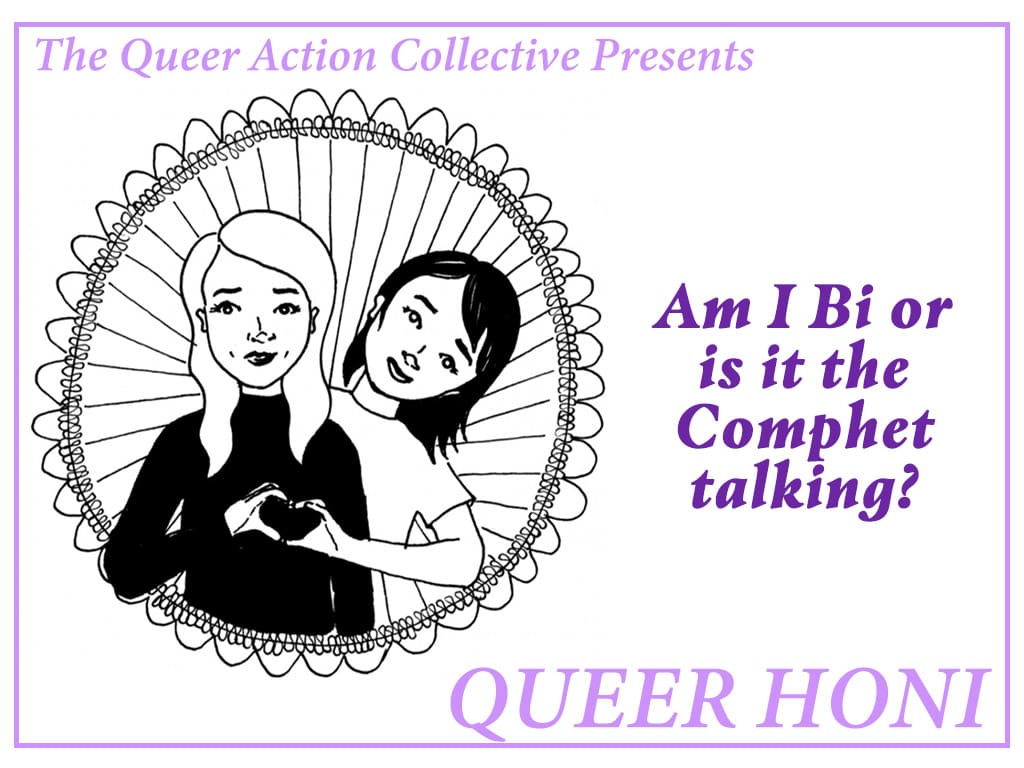Earlier this year, ContraPoints uploaded a YouTube video entitled “Shame”. In it, she comes out as a lesbian, pointing out part of why it took so long for her to accept this label was because of “compulsory heterosexuality”, aka “comphet”. As she explains, her experience of comphet made her feel as though it were shameful for her—especially as a trans woman—to embrace being a lesbian.
As defined by Adrienne Rich in 1980, compulsory heterosexuality describes a socially-ingrained institution that reinforces the performance of cisgender and heterosexual norms by oppressing deviation from it. Heterosexuality is “compulsory” by virtue of being the unquestioned, default status quo. On an individual level, comphet particularly erases lesbian experience because the patriarchal bent of our social institutions defines femininity in relation to men. While compulsory heterosexuality is an organising structure of our society, which includes an embedded financial, reproductive, and creative control of women, it can also be experienced as pressure for women to perform desire for men as part of their womanhood, as ContraPoints did.
ContraPoints’s video couldn’t have come at a more confusing time for me. I had been entertaining the idea that I was bisexual and downloaded a dating app, expressing interest in any gender. Funnily enough, I hadn’t identified as straight before—I had been a lesbian. In fact, part of why I originally identified as such was because I had read through online discussions about comphet.
Over the past few years, lesbian activists have shared resources via social media with checklists for any wavering lesbians thinking they might be experiencing the social aspects of comphet. Some of the points look at early indications of crushes on girls that hadn’t been parsed as attraction yet: admiration, wanting to kiss, or a strong desire to become best friends. Others put “attraction” towards men under the microscope. Lesbians experiencing comphet may say they could date a man, but only if he meets certain “high standards” that are engineered to be impossible for anyone to reach. Another point states that they may only crush on men who cannot reciprocate interest, such as celebrities or authority figures. They can also be anxious about interacting with men who could be interested in them, or generally repulsed by heterosexual relationships. Another point is they may date a man without feeling romantic or sexual interest towards him, just so they can perform heterosexuality by letting other people know they have a boyfriend.
Some of these points had resonated with me. The only men to whom I had been attracted were celebrities and I tended to roll my eyes at cishets in general. Sometime last year, I had an uncomfortable encounter with a man who was a bit too obviously interested in me—although I could easily put my discomfort down to his unpleasantness rather than gender. On the other hand, my interest in women had been an established fact since that first heart-wrenchingly unrequited high school crush; plus, I’d just ended a two-year relationship with a woman.
As for men—well, I hadn’t quite worked it out yet. I sometimes found men physically attractive, and there were one or two boys I knew who I thought could be alright people to date; I even felt that I could have sex with a man. But here’s the catch: I didn’t know whether I’d be romantically attracted to one.
In the end, I sorted out the matter pretty easily. Trying to match with women on a dating app was difficult; most people who responded were male. So after one uneventful date with a girl, I ended up going out with a boy. Then I saw him again. And again. And again. And again.
Long story short, that’s how I discovered I was bi.
As queer people, we can often switch in and out of labels. Gender and sexuality are nebulous categories; sometimes, we use labels to help ourselves define our own experience, sometimes we use them to help others understand our identities. Our homophobic, patriarchal societies don’t make the task of choosing the “correct” label any easier. Reading theory that helps you understand the way society structures sexuality is definitely important, and can expand and clarify your view of the world around you. But in the end, you just have to trust your gut.





